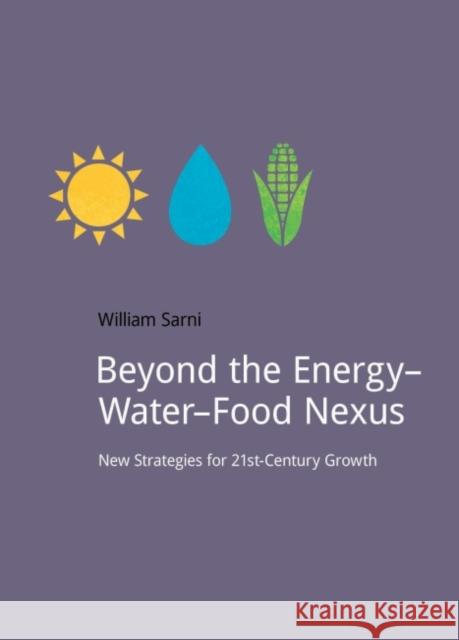Beyond the Energy-Water-Food Nexus: New Strategies for 21st-Century Growth » książka
Beyond the Energy-Water-Food Nexus: New Strategies for 21st-Century Growth
ISBN-13: 9781910174470 / Angielski / Miękka / 2015 / 73 str.
Providing food, clean water and energy for a growing population is one of the greatest challenges facing public and private sector professionals. While there is widespread recognition of the complex feedback loops between energy, water and food, there has been less focus on viable solutions.
This guide by Will Sarni - an internationally recognized thought leader on corporate water stewardship and water tech innovation - frames the key issues and challenges for business professionals, and then outlines emerging solutions which include both "soft path" and technology innovation approaches.
The book includes case examples of multinational companies who are abandoning business as usual and moving beyond traditional thinking. It also highlights crucial new partnerships or "collective action initiatives" where NGOs, multinationals and the public sector come together to forge practical solutions to meet the needs of their stakeholders.
Solutions to the energy-water-food nexus will need to be disruptive, not incremental, and will require technology innovation, new public-private partnerships, and changes in public policy.
Beyond the Energy-Food-Water Nexus shows organizations how they can play their part in improving the quality of life for an urbanized global population while preserving the ecosystems that sustain us all.
Providing food, clean water and energy for a growing population is one of the greatest challenges facing public and private sector professionals. While there is widespread recognition of the complex feedback loops between energy, water and food, there has been less focus on viable solutions. This guide by Will Sarni - an internationally recognized thought leader on corporate water stewardship and water tech innovation - frames the key issues and challenges for business professionals, and then outlines emerging solutions which include both "soft path" and technology innovation approaches. The book includes case examples of multinational companies who are abandoning business as usual and moving beyond traditional thinking. It also highlights crucial new partnerships or collective action initiatives where NGOs, multinationals and the public sector come together to forge practical solutions to meet the needs of their stakeholders. Solutions to the energy-water-food nexus will need to be disruptive, not incremental, and will require technology innovation, new public-private partnerships, and changes in public policy. Beyond the Energy-Water-Food Nexus shows organizations how they can play their part in improving the quality of life for an urbanized global population while preserving the ecosystems that sustain us all.











